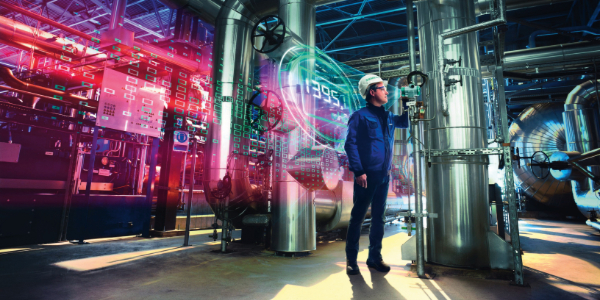Process Instrumentation in the Energy Transition Market and How it is Disrupting Energy Efficiency

Process instrumentation is the process of evaluating a company's operations to improve its performance. It is used as an aid for organizations or companies who are looking to improve processes, and many different types of instruments can be used. Process instrumentation focuses on measuring and analyzing a company’s operations to identify opportunities for improvement.
Process Instrumentation in European Power Systems
Process Instrumentation refers to a broad range of measurements and data-logging techniques used in industrial processes, specifically those related to electricity generation and distribution networks. This includes measurements such as voltage, current, frequency, phase angle, and power factor at various points on a circuit or network as well as other parameters such as line temperature and leakage currents.
The recent increase in renewable energy production has made the power systems of many countries more vulnerable to disturbances. This is because the intermittent generation of electricity from renewables leads to increased variability in the power system frequency, which can lead to instability.
To manage this problem, process instrumentation is used to monitor and control a variety of parameters, such as voltage and current. The data collected through this process can be used for a variety of purposes, including predicting faults and outages.
Process Instrumentation in Power Generation Technology - The Future of Clean Electricity Generation?
The power generation industry is undergoing a significant shift in the way power is generated. The growth of renewable energy sources, such as wind and solar, has led to an increase in the need for process instrumentation. To better understand this shift, it is important to first understand what process instrumentation is and why it is needed.
Process instrumentation refers to the use of sensors and meters that are used in industrial processes to monitor operating conditions. Process data can be used by engineers on-site or remotely via a SCADA system (supervisory control and data acquisition system) for predictive maintenance or troubleshooting purposes.
The process instrumentation in power generation technology is an important part of the new and upcoming technologies for clean electricity generation. The power industry has been working to develop a better understanding of the process instrumentation to make cleaner sources of energy more accessible. This new technology will allow for more efficient, cleaner, and cheaper production of energy.
The 5 Main Challenges for Process Instrumentation Projects in Industry
1) The need for a common language: Instrumentation projects in the industry are often hampered by a lack of a common language. This can confuse and lead to errors in data interpretation.
2) Lack of team-building skills: An instrumentation project is not just about the hardware, but also about the people who will be using it. It is important to have good team-building skills to ensure that everyone works together as one cohesive unit.
3) Lack of understanding: It is important for engineers to have a good understanding of the process they are monitoring, otherwise they might not know which signals are important and which ones can be ignored. Engineers must also understand how the sensor data should be processed and interpreted before they can design an effective monitoring system.
4) Lack of knowledge: Engineers need to know what sensors exist for each process, how accurate each sensor is, how much power each sensor consumes, and how much data each sensor produces.
5) Lack of expertise: Engineers need to know how to use the instruments they create, how to calibrate them, and what their limitations are so that they do not produce false results or produce too much data.
The 3 Key Requirements for Process Instrumentation Projects to be Successful
Instrumentation is the process of measuring and recording data. Instrumentation projects are a type of project that measure and record data.
The three key requirements for process instrumentation projects to be successful are:
- The ability to execute the project within budget
- The ability to meet the project’s objectives
- The ability to deliver timely, accurate, and actionable data
How Process Instrumentation is Changing the Energy Transition Market Beyond Expectations and Saving Energy Companies Millions of Dollars?
Process instrumentation is a branch of industrial engineering that deals with the measurement, control, and optimization of processes. Process instrumentation is not just changing the energy transition market but they are also saving energy companies million. Process instrumentation is a branch of industrial engineering that deals with the measurement, control, and optimization of processes. The integration of process instrumentation in the industry has been on a steady rise for decades now and it’s not going to stop anytime soon.
There are two ways to measure a company's success: by its profits or by its impact on the environment. With process instrumentation, there is no need to choose between them. Process instruments can help save energy companies millions while also increasing their revenue at the same time.
Conclusion: Start Using Process Instrumentations for Your Next Energy Project
Over the past two decades, process instrumentation has been used to optimize energy production and improve the reliability of power plants. However, process instrumentations are not yet widely used in other fields of the industry due to expense, the complexity of installation and maintenance, and a lack of uniform standards. Process instrumentation data can be used by companies in any industry due to the abundance of data that companies already collect during operations.










